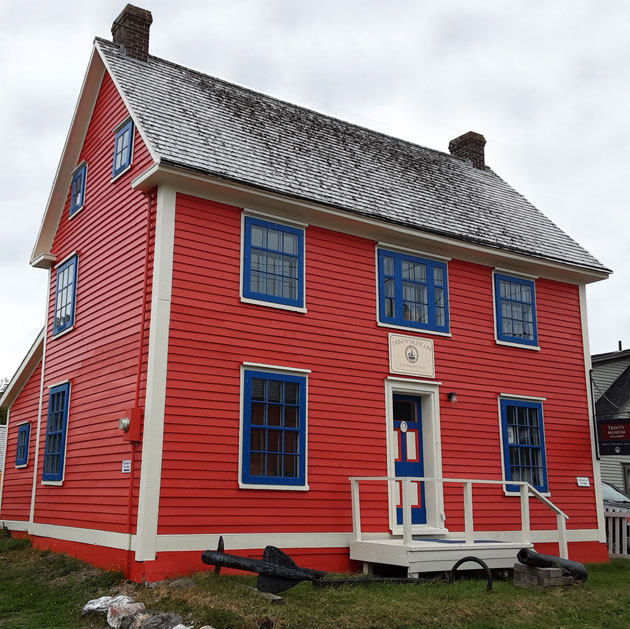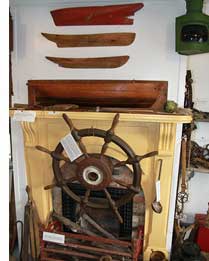 The Trinity Museum is located on Church Road, just beyond St. Paul's Anglican Church. It dates from 1967 when the house was purchased. The house has four rooms on the first floor and three on the second.
The Trinity Museum is located on Church Road, just beyond St. Paul's Anglican Church. It dates from 1967 when the house was purchased. The house has four rooms on the first floor and three on the second.
The store room/back porch is the admission and craft demonstration area. During the operational season, staff and students demonstrate how to hook a traditional mat using scraps of cloth. Visitors are invited to try their hand at this traditional pastime.
The kitchen boasts a plethora of domestic items including a selection of glassware, crockery and oil lamps. Delicate samplers in time-honoured patterns grace the walls. The living room holds maps and plans as well as medical instruments, survey instruments and a spinning wheel. The washroom houses cobbler's tools, including a shoemaker's machine, hobnails and handmade leather boots. One bedroom displays saws (ice, pit, cross cut). Ships’ equipment is also featured here including a ship's log, vessel pump, marlin spikes and jigger moulds. Another bedroom contains army and navy uniforms from WWI and WWII, photographs, a gas mask from WWI, muskets, cannonballs and a bullet mould.
marlin spikes and jigger moulds. Another bedroom contains army and navy uniforms from WWI and WWII, photographs, a gas mask from WWI, muskets, cannonballs and a bullet mould.
Adjacent to the main building is a fire engine shed, for the display of the 1811 fire pump used by the Garland Firm for the protection of their properties and of the settlement.
The Trinity Museum is open from June 2 to October 12 from 9:30 am - 5:00 pm daily. The price of admission is $23.00 per adult. Seniors and Students $18.00 per person. Children and Youth 16 years and younger are admitted free of charge. Admission includes entry to eight historic sites in the Town: the Visitors Centre, Lester-Garland House, Lester-Garland Premises (Ryan’s Shop), Cooperage, Green Family Forge, Hiscock House, Trinity Museum and Fort Point.
Visitors may purchase their Trinity Experience pass at Fort Point or the Lester-Garland House.
